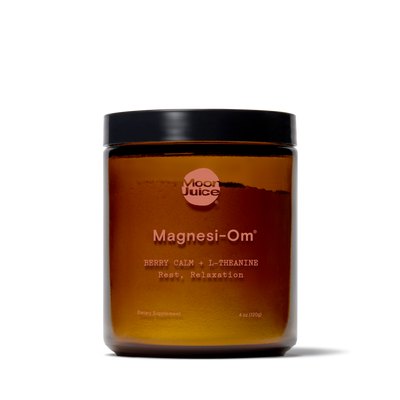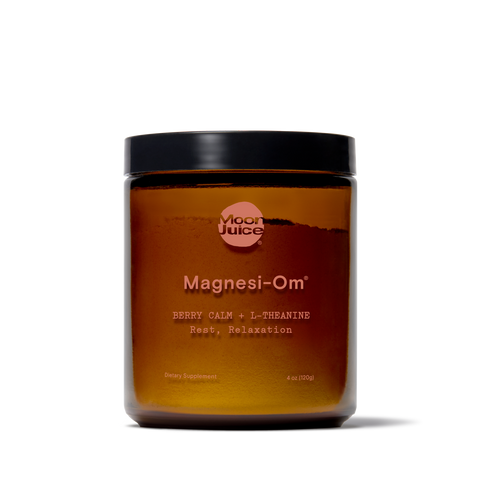Many people experience brain fog from time to time. Any number of things can cause short-term instances of brain fog — ranging from getting a poor night’s rest to the stress of having too much on your plate and even sheer boredom. However, anything more than occasional cloudiness and difficulty thinking and concentrating typically warrants further investigation. If you’re seeking natural ways to support brain health and cognitive function, boosting your diet with the best foods for brain fog is a safe and solid bet.
Looking for brain boosting foods to support healthy brain function? Our experts have created just the guide for you. Ahead, see which plant-based foods are ideal to alleviate brain fog so you can eat your way to a sharper mind and enhanced focus.
1. Leafy Greens
Leafy green veggies — think spinach, kale, and lettuce — offer no shortage of nutrients and bioactives that help beat brain fog, including:
- Lutein
- Folate
- Phylloquinone
- Nitrate
- Α-tocopherol
- Kaempferol
A 2021 review in the journal Nutrients recaps Lutein’s positive impacts on brain activity and health, with improvements spanning across:
- Learning
- Resting-state connectivity (i.e., signals across brain regions at rest and without stimuli)
- Gray matter volumes (higher amounts of which improve outcomes for information processing, reasoning, cognition, and speech)
- Healthy brain structure
- Neural efficiency carrying out cognitive tasks
Folate is another notable nutrient in leafy greens that can help with mental fatigue and brain fog. Adequate levels of Folate are crucial for brain function and to stave off cognitive deficits. Folic Acid (one type of Folate) has also been shown to significantly improve attention and memory.
Published in the journal Neurology, a 2018 study of nearly 1,000 older adults found that those who ate a serving of leafy greens daily demonstrated slower rates of cognitive decline. Even more impressive: Those who consumed one or two servings of leafy greens daily had the minds of adults 11 years younger compared to participants who lacked these veggies in their diets.
2. Parsley
Herbs may be afterthought when you’re making salads, soups, and other dishes. However, parsley is one herb you should definitely stock up on given its status as an excellent food for brain fog and cognition. Parsley is one of the richest dietary sources of Xanthophylls — yellow pigments that belong to the Carotenoid family, with Lutein as one of the most common — as well as Folate.
Moreover, parsley is a natural source of Apigenin, a flavonoid that improves neuron formation and strengthens connections between brain cells. Strong connections between neurons are necessary to support brain function, facilitate learning, and consolidate memories. In other words, you don’t want to neglect this brain-boosting herb when it’s time to make your next grocery haul.
3. Turmeric
Similar to herbs, spices are often overlooked for their potential to boost markers of health, with brain function among them. Yet turmeric should be a staple in your pantry to not only help with brain fog but also improve physical and mental well-being at large.
Curcumin — the primary active constituent in turmeric — can significantly increase levels of brain-derived neurotrophic factor (BDNF). BDNF functions as a neurotransmitter modulator and is involved in neuronal plasticity. As such, higher levels of BDNF can enhance cognitive performance, learning, and memory while reducing the risk of cognitive decline.
4. Berries
Fruits are part and parcel of a healthy diet, and berries may very well take the top spot as far as overcoming brain fog is concerned. Berries are rich in Polyphenols, which have neuroprotective effects thanks to their abilities to:
- Cross the blood-brain barrier and scavenge free radicals
- Activate antioxidant enzymes in the brain
- Improve learning and memory
- Support cognitive function
Blueberries, in particular, have been shown to increase blood flow in the brain to yield benefits for attention and memory in both young and older adults. Moreover, a 2013 study published in the Annals of Neurology found that older adults who consistently ate strawberries and blueberries over two decades showed slower rates of cognitive decline. The authors of the study largely attributed the brain-protective benefits of berries to their high content of Flavonoids, including Anthocyanins and Anthocyanidins.
In light of these findings, it’s clear that berries aren’t only among the best foods for brain fog, but also highly beneficial for long-term cognitive health.
5. Walnuts
Walnuts are rich in healthy fats: specifically Alpha-Linolenic Acid (ALA) Omega-3 Fatty Acids. The benefits of Omega-3s for brain health, for everyone at every age, can’t be underestimated. Per a 2022 review in the Cureus Journal of Medical Science, adhering to a diet rich in Omega-3 Fatty Acids can:
- Facilitate learning
- Enhance memory
- Promote cognitive well-being
- Boost blood flow in the brain
While fatty fish like salmon and mackerel are routinely cited as the richest sources of other important Omegas — Docosahexaenoic Acid (DHA) and Eicosapentaenoic Acid (EPA) — walnuts are a worthy source of plant-based ALA to get your fix of these brain-boosting fats. According to a 2020 review in the journal Nutrients on their benefits for brain and cognitive health, walnuts can:
- Improve cognitive performance
- Boost memory
- Reduce the risk of developing or progressing cognitive impairment
Walnuts are among the top foods that help with brain fog, in part, given their ability to reduce oxidative stress. By avoiding the proliferation of free radicals and boosting antioxidant defense, walnuts help to decrease oxidative stress damage and cell death that can cause or exacerbate issues with cognition.
Per the National Institutes of Health (NIH), the adequate intake (AI) for ALA daily is 1.6 grams for healthy adult men and 1.1 grams for healthy adult women. A one-ounce serving of walnuts packs a whopping 2.5 grams of ALA, so it can easily cover your bases to help you overcome brain fog.
6. Avocado
If you can’t get enough avocado on toast, in guacamole, or sliced on top of salad, you’ll be pleased to learn that consuming the fruit is linked to improvements in cognition. Avocados are nutrient-dense, packing the likes of monounsaturated fats, Folate, and fiber — all of which stand to benefit brain health.
A 2017 study published in the journal Nutrients investigated the effects of eating one avocado per day over the course of six months. Participants who did so demonstrated a significant increase in:
- Sustained attention
- Working memory
- Efficient problem-solving
The authors of the study credited avocado’s mind-sharpening powers in large part to Lutein. (As previously mentioned, it’s a high achiever for markers of brain health across the board.) However, you don’t necessarily need to eat avocados day in and day out to overcome brain fog. In fact, a 2021 study published in Frontiers in Nutrition shows that older adults who consumed avocado 24 hours before completing a series of cognitive tests performed better with immediate and delayed recall, achieving higher scores than non-avocado cohorts.
Magnesium for Brain Fog H2
Excluding turmeric, the foods for brain fog cited above share a key commonality: They’re all good or excellent sources of Magnesium. Magnesium is an abundant mineral in the body, and every cell requires it to function properly. So, if you’re wondering if you should take magnesium supplements, the answer is yes!
The brain benefits of Magnesium are highly impressive, which include:
- Enhancing neuroplasticity (aka the brain’s ability to adapt, grow, and make new connections)
- Improving memory
- Boosting test and academic performance
- Helping to stave off cognitive decline, maintain brain volume, and reduce “brain age”
Unfortunately, around 50 percent of people in the United States don’t get enough Magnesium on a daily basis. (Per the NIH, adult women who aren’t pregnant or lactating require 310 to 360 milligrams daily, while adult men require 400 to 420 milligrams.)
Naturally, one way to boost your Magnesium levels is to eat the best foods for brain fog that contain the mineral. Additional food sources of Magnesium include:
- Bananas
- Sweet corn
- Almonds
- Peanuts and peanut butter
- Cashews
- Pumpkin seeds
- Sesame seeds
- Black beans
- Edamame
Prioritizing these plant-based foods surely won’t hurt, but it may not be enough to get the amount of Magnesium you need — largely due to soil depletion of modern crops (among other factors). For this reason, a quality and clean Magnesium powder supplement can help ensure you get enough of the mineral to stave off brain fog. (Bonus: Magnesium also helps reduce stress, improve sleep, and facilitate regular bowel movements.)
Magnesi-Om® includes 3 bioavailable types of Magnesium:
- Magnesium Acetyl Taurinate to support cognitive function*
- Magnesium Gluconate to support muscle relaxation*
- Magnesium Citrate to support regularity*
The formula also packs L-theanine, a nootropic amino acid that promotes alpha-wave brain activity, thus helping to provide cognitive support for feelings of alert relaxation and mental clarity without over-stimulation.*
Mix 1 tsp of the Magnesium powder in water before bed to help make brain fog a distant memory.*
Sign Up, Nerd Out
Get wellness tips, education, and recipes
delivered straight to your inbox.
Get wellness tips, education,
and recipes delivered
straight to your inbox.
The Takeaway
Following a healthy, diverse, plant-forward diet will benefit your health in a myriad of ways. If you want to keep your mind sharp, enhance focus, and promote healthy cognitive aging, eating the best foods for brain fog and supplementing with bioavailable forms of Magnesium can make a discernible difference on boosting healthy brain function.
Still, overcoming brain fog requires a team effort sustained over time — meaning your diet alone is only one part of the larger equation. You’ll also need to get enough sleep, move your body regularly, maintain strong social connections, and incorporate novelty into your lifestyle whenever possible.
Sources
- https://www.ncbi.nlm.nih.gov/pmc/articles/PMC8223987/
- https://my.clevelandclinic.org/health/body/24831-grey-matter
- https://pubmed.ncbi.nlm.nih.gov/18653121/
- https://www.ncbi.nlm.nih.gov/pmc/articles/PMC5772164/
- https://www.ncbi.nlm.nih.gov/pmc/articles/PMC3705341/
- https://www.sciencedaily.com/releases/2015/12/151210144912.htm
- https://pubmed.ncbi.nlm.nih.gov/31279955/
- https://www.ncbi.nlm.nih.gov/pmc/articles/PMC4697050/
- https://njaes.rutgers.edu/sshw/message/message.php?p=Health&m=350https://journals.lww.com/nrronline/Fulltext/2014/09160/Neuroprotective_effects_of_berry_fruits_on.13.aspx
- https://njaes.rutgers.edu/sshw/message/message.php?p=Health&m=350
- https://www.ncbi.nlm.nih.gov/pmc/articles/PMC3582325/
- https://www.ncbi.nlm.nih.gov/pmc/articles/PMC9641984/
- https://www.ncbi.nlm.nih.gov/pmc/articles/PMC7071526/
- https://ods.od.nih.gov/factsheets/Omega3FattyAcids-HealthProfessional/
- https://walnuts.org/nutrition/nutrition-info/alpha-linolenic-acid/
- https://fdc.nal.usda.gov/fdc-app.html#/food-details/1102652/nutrients
- https://www.mdpi.com/2072-6643/9/9/919
- https://www.frontiersin.org/articles/10.3389/fnut.2021.746453/full
- https://www.frontiersin.org/articles/10.3389/fnins.2017.00087/full
- https://pubmed.ncbi.nlm.nih.gov/18935793/
- https://lpi.oregonstate.edu/mic/micronutrient-inadequacies/overview
- https://ods.od.nih.gov/factsheets/Magnesium-HealthProfessional/
- https://www.ncbi.nlm.nih.gov/pmc/articles/PMC6316205/
- https://www.nytimes.com/2022/09/13/well/mind/brain-fog-treatment.html
















